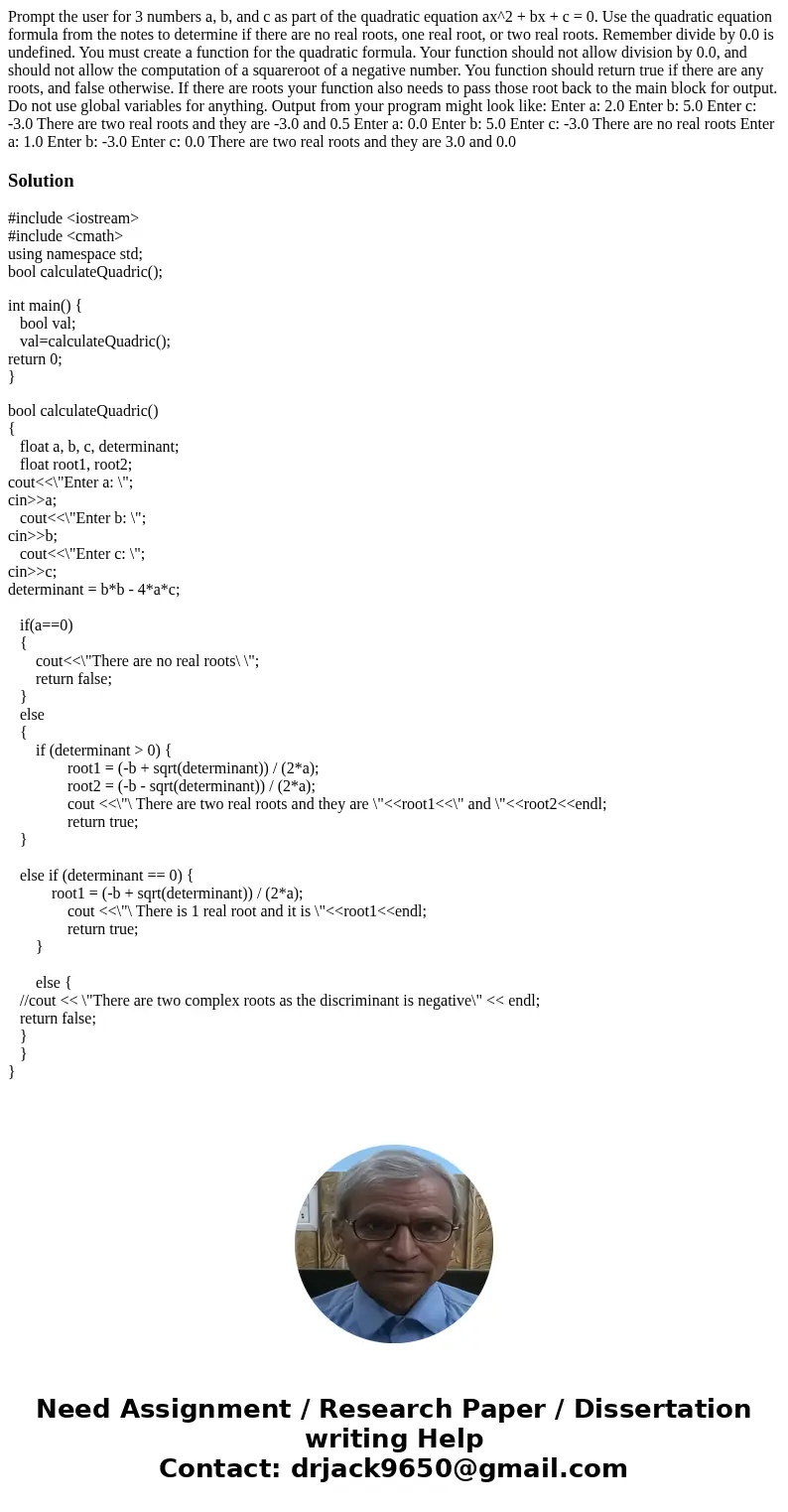Prompt the user for 3 numbers a b and c as part of the quadr
Solution
#include <iostream>
#include <cmath>
using namespace std;
bool calculateQuadric();
int main() {
bool val;
val=calculateQuadric();
return 0;
}
bool calculateQuadric()
{
float a, b, c, determinant;
float root1, root2;
cout<<\"Enter a: \";
cin>>a;
cout<<\"Enter b: \";
cin>>b;
cout<<\"Enter c: \";
cin>>c;
determinant = b*b - 4*a*c;
if(a==0)
{
cout<<\"There are no real roots\ \";
return false;
}
else
{
if (determinant > 0) {
root1 = (-b + sqrt(determinant)) / (2*a);
root2 = (-b - sqrt(determinant)) / (2*a);
cout <<\"\ There are two real roots and they are \"<<root1<<\" and \"<<root2<<endl;
return true;
}
else if (determinant == 0) {
root1 = (-b + sqrt(determinant)) / (2*a);
cout <<\"\ There is 1 real root and it is \"<<root1<<endl;
return true;
}
else {
//cout << \"There are two complex roots as the discriminant is negative\" << endl;
return false;
}
}
}

 Homework Sourse
Homework Sourse